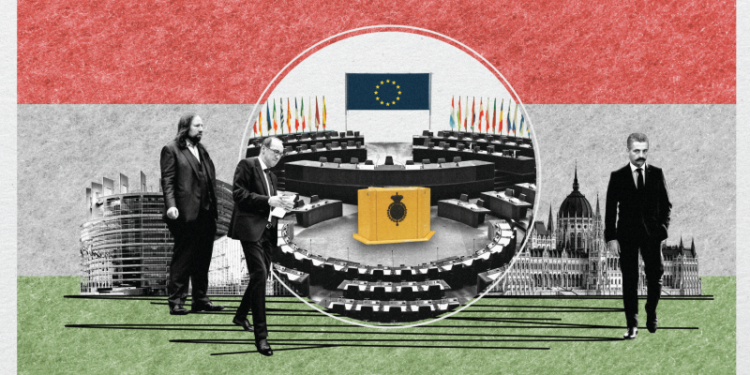) confirmed to Euractiv.
Orbán’s unsolicited trips “seriously undermined” mutual trust and make him fear that his attendance will be “misused” to pretend that Hungary’s actions represent the EU, Cepuritis wrote in a letter to Tessely, seen by Euractiv.
The confrontation at COSAC is a notable step for national lawmakers: Founded in 1989 and now part of the EU treaties, the forum’s twice-annual meetings represent one of the few cross-national institutions that parliaments can use to intervene in European politics.
While EU treaties formally task national parliaments – through their European affairs committees – with holding government officials accountable for their EU-level politics, the lack of tangible EU-level power leaves parliaments ill-equipped to fulfil that task, Christine Neuhold of the University of Maastricht told Euractiv.
Thus, national assemblies fall back on what Hofreiter called the “enormous soft power” of COSAC meetings, where they can coordinate and jointly press national governments if necessary.
Hofreiter pointed to the example of Europe’s joint actions against Russia’s invasion, which he claims was also the result of pressure from national parliaments, after experiencing overwhelming cross-European support for Ukraine at COSAC.
Other attendants share this opinion. In terms of Ukraine support, the experiences gained through exchanges in COSAC were “a very important point” for building national awareness, said Othmar Karas, a former Austrian conservative MEP who attended COSAC meetings over seven years as the EU Parliament’s vice-president.
‘Orbán’s politics is isolated here’
COSAC’s signals are thus likely to be heard in Hungary, as national parliaments care about those events, Neuhaus noted.
“If you look at what is on the agenda of the COSAC meeting due to the priorities of the Hungarian presidency, these are very salient topics, such as migration and defence.”
“We really see here that [exchanges between] parliaments are increasingly seen as a forum to put things on the agenda and control what is going on in Brussels,” she said.
If past COSAC experiences are anything to go by, Hungary is likely to be met with open resistance, according to Hofreiter. EU affairs committees across the bloc tend to be pro-European and have not shied away from taking a tough stance against rule-of-law violations in Hungary’s presence, he said.
“Orbán’s politics is isolated here,” he added.
[Edited by Oliver Noyan/Zoran Radosavljevic]
Read more with Euractiv
Source link : https://www.euractiv.com/section/politics/news/europes-national-parliaments-take-on-hungarys-council-presidency/
Author :
Publish date : 2024-07-26 12:51:56
Copyright for syndicated content belongs to the linked Source.


